
When Chinese leader Xi Jinping came to power in 2012, he unveiled a sweeping vision for the “great rejuvenation” of the country — a “dream” that would make China powerful and prosperous.
Ten years later, Xi has transformed China. He has consolidated the country as a force on the world stage, with an expansive economic footprint, a modernizing military and rising technological prowess.
But China has also become an increasingly restrictive place for its citizens, with swift suppression of dissent, pervasive surveillance and mounting social controls, which have only grown more pronounced under Xi’s costly and isolating zero-Covid policy.
With the Chinese Communist Party in the midst of its five-yearly leadership reshuffle, CNN looks back at a decade of dramatic change for China that has set the stage for the country’s next chapter, as Xi — its most powerful leader in decades — steps into an expected norm-breaking third term.
Power to the party
Xi has overseen a wide-scale anti-corruption campaign within the Communist Party to cement his grip on power. Critics have called it a political purge, but the push has appeared to win public support for cracking down on a culture of excess and corruption among both “tigers” — high-ranking officials — and “flies” — lower-level cadres.
million
officials investigated since the 18th Party Congress in late 2012, when Xi came to power.
of them were senior officials.
Source: CCP Central Commission for Discipline Inspection (2022)
Credits (from top right): Ng Han Guan/AP, Kevin Frayer/Getty Images, Noel Celis/AFP/Getty Images, Ng Han Guan/AP, Nicolas Asfouri/AFP/Getty Images.
Credits (clockwise from top left): Ng Han Guan/AP, Kevin Frayer/Getty Images, Nicolas Asfouri/AFP/Getty Images, Noel Celis/AFP/Getty Images, Ng Han Guan/AP.
Xi has also built a cult of personality around himself as the “core” of the party and strengthened its role in all aspects of life.
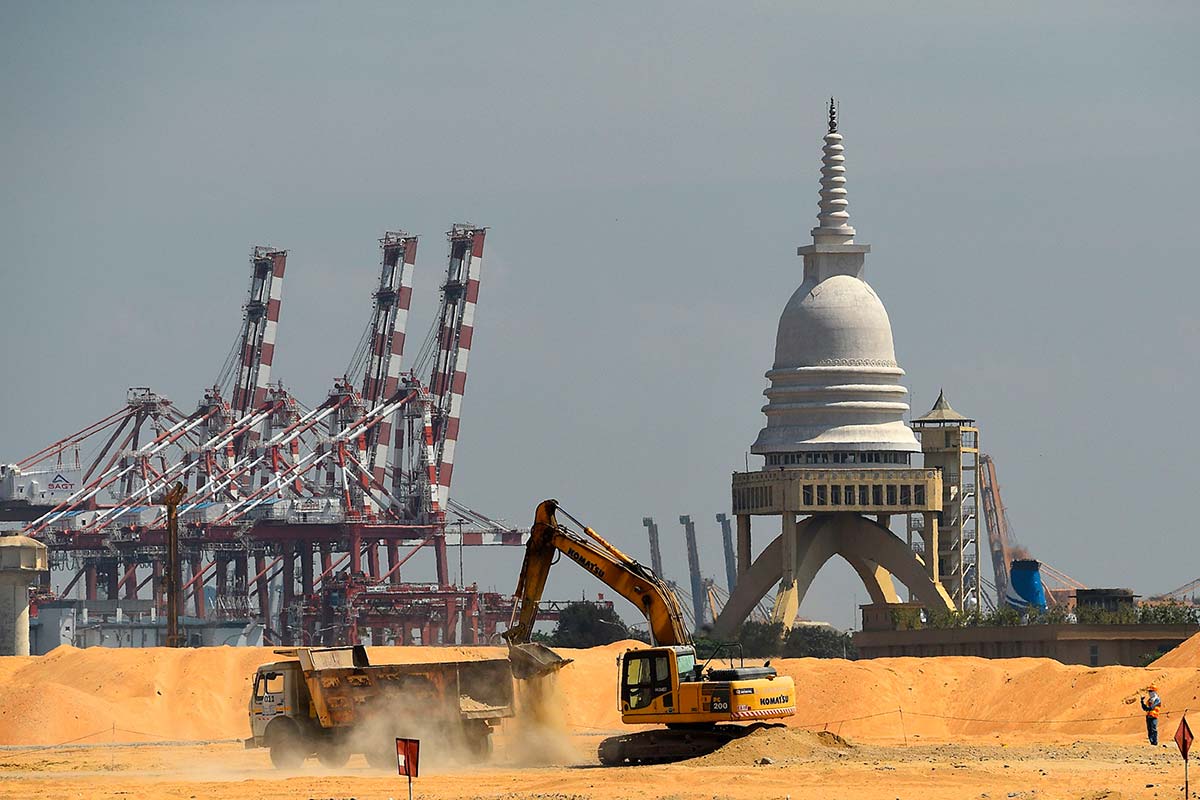
Belt and Road Initiative
Chinese entities have poured what US-based research lab AidData estimates to be an average $85 billion annually into financing infrastructure from Southeast Asia to Latin America under Xi’s flagship project — despite criticisms of risky lending.
Credit: Ishara S. Kodikara/AFP/Getty Images
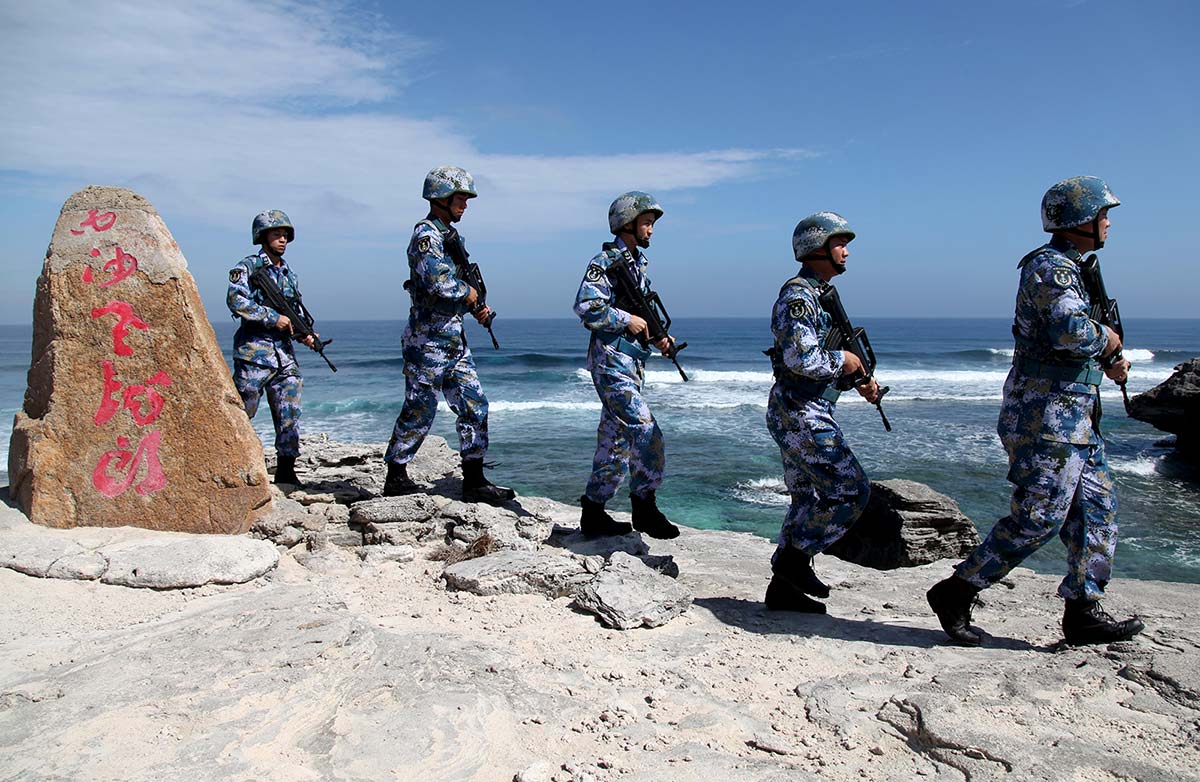
Territorial claims
Beijing has grown assertive in its territorial claims — militarizing islands in the South China Sea, clashing with India at a disputed Himalayan border, stoking tensions with Japan over uninhabited islands and ramping up rhetoric on its claim to Taiwan.
Credit: Stringer/Reuters

“Wolf warriors”
Beijing has favored a new kind of diplomat: combative, assertive and ready to lash out, whether in the United Nations or on social media, to defend Xi’s policies.
Credit: Kydpl Kyodo/AP

Climate leadership
Xi has pledged that China, a top greenhouse gas emitter, will go carbon neutral by 2060 and stop building coal plants overseas — though transparency remains limited.
Credit: Kevin Frayer/Getty Images

Closer to Russia
Beijing and Moscow have tightened their “strategic partnership” in recent years, drawn closer over respective tensions with the West and the personal rapport between Xi and Russian President Vladimir Putin.
Credit: Mikhail Svetlov/Getty Images
Beijing’s human rights record, assertive foreign policy, handling of Covid-19 and close ties with Moscow are among factors that have damaged perceptions of China in the West — and its relationships with governments there.



Credits (from top to bottom): Kevin Frayer/Getty Images, Li Tang/VCG/Getty Images, Li Bingyu/Xinhua/AP.
Military expansion
Xi launched an extensive project to reform and modernize the People’s Liberation Army and transformed China’s navy into the world’s largest by fleet size, with its first overseas military base opening in Djibouti in 2017.
“Common prosperity”
Turning China into a “moderately prosperous society” has been a cornerstone of Xi’s decade in power. Early on, he trained his sights on eliminating “absolute poverty” in rural areas.
During these early years, private companies thrived mostly unimpeded and a consumer tech revolution bloomed — enhancing daily conveniences for a growing middle class, as China transitioned from an industrial hub to a services and high-tech economy.

In more recent years, Xi has tightened regulations to tamp down on debt, property speculation and financial risk, while also upping Communist Party control within the economy. His “common prosperity” vision to narrow the wealth gap and broad campaigns to rein in powerful companies have appeared to signal the end of an era of freewheeling private enterprise.
Some of these moves, along with the zero-Covid policy, have contributed to higher unemployment and dragged down China’s already slowing growth.
million
rural residents no longer living below China’s standard of “absolute poverty” since 2012.
billion
internet users in China as of June 2022, up from 564 million in 2012.
kilometers (about 20,000 miles) added to China’s high-speed rail network since late 2012.
$ trillion
estimated loss in market value for Chinese companies worldwide at the height of China’s 2021 crackdown on private enterprise.
Source: China’s State Council Information Office, China Internet Network Information Center, Xinhua news agency, and Goldman Sachs
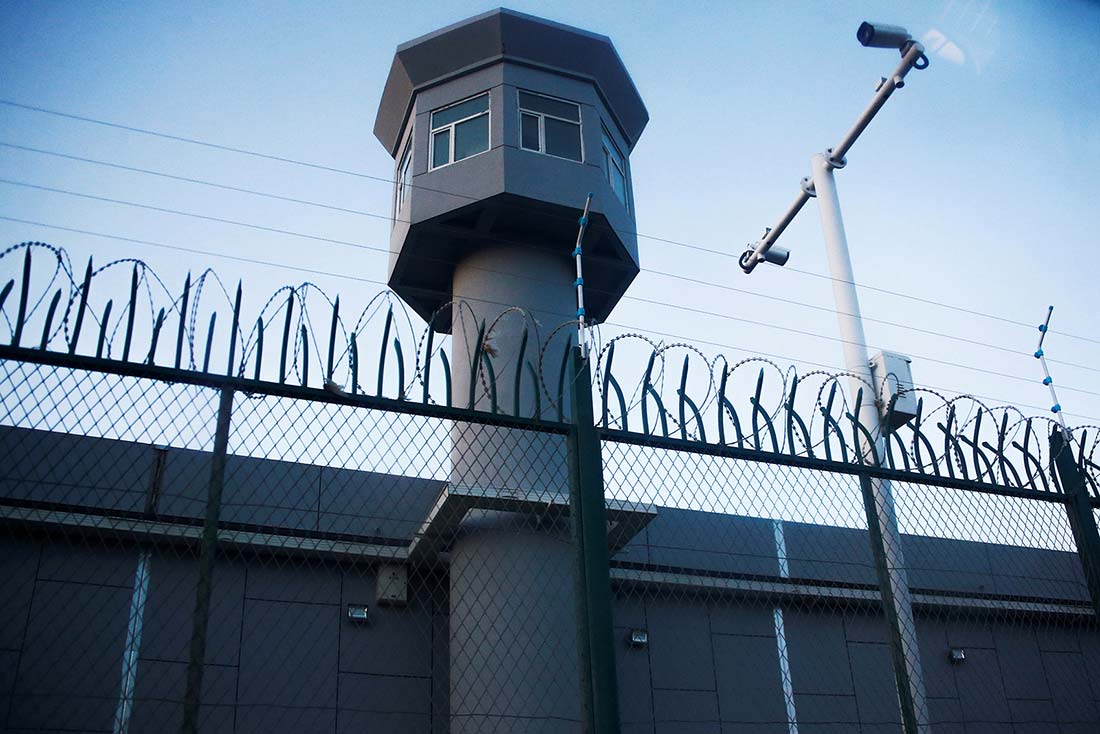
An estimated more than 1 million Uyghur and other minorities have been interned in detention facilities, according to rights groups, where there are reports of torture and sexual abuse. China said it dismantled what were “education and training” centers, but researchers say some detainees were transferred to prisons.
Credit: Thomas Peter/Reuters
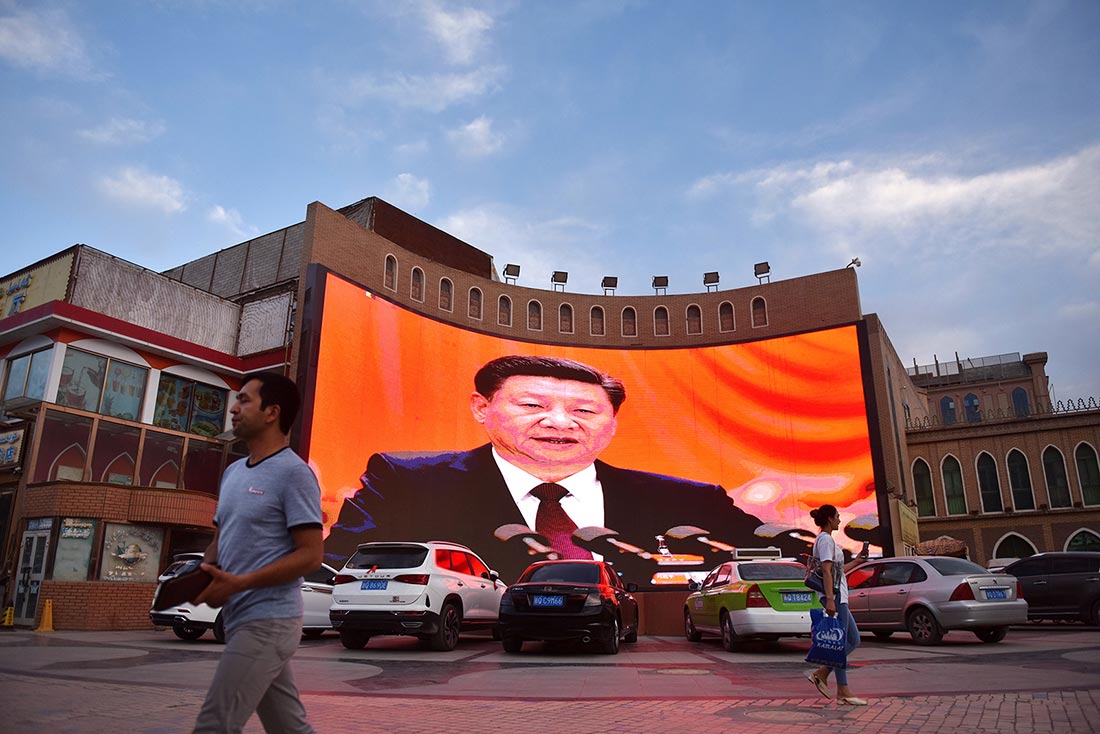
A far-reaching system of video surveillance, police checkpoints, biometric data collection and digital monitoring in Xinjiang, all cited in the UN report, is believed to have enabled local authorities to track and target Muslim minorities.
Credit: Greg Baker/AFP/Getty Images
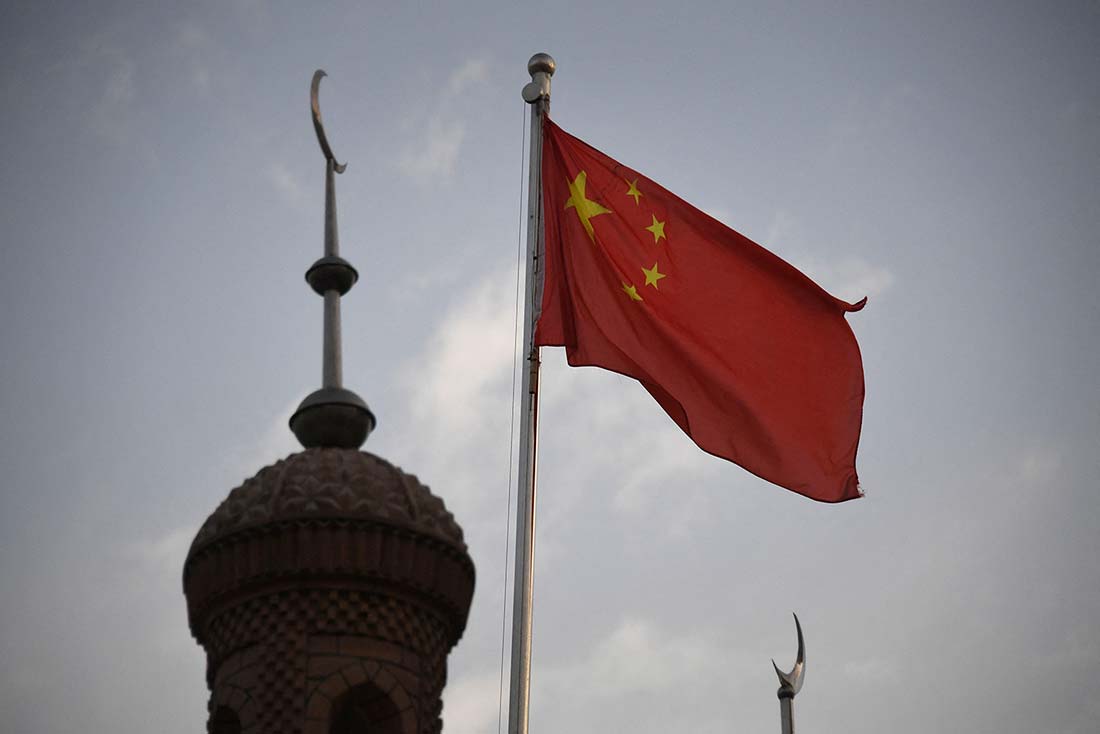
Authorities have repressed Uyghur and other ethnic groups’ cultural identity, including by restricting religious practice, rights groups say. Researchers have also documented the destruction of religious sites, such as mosques and cemeteries.
Credit: Greg Baker/AFP/Getty Images
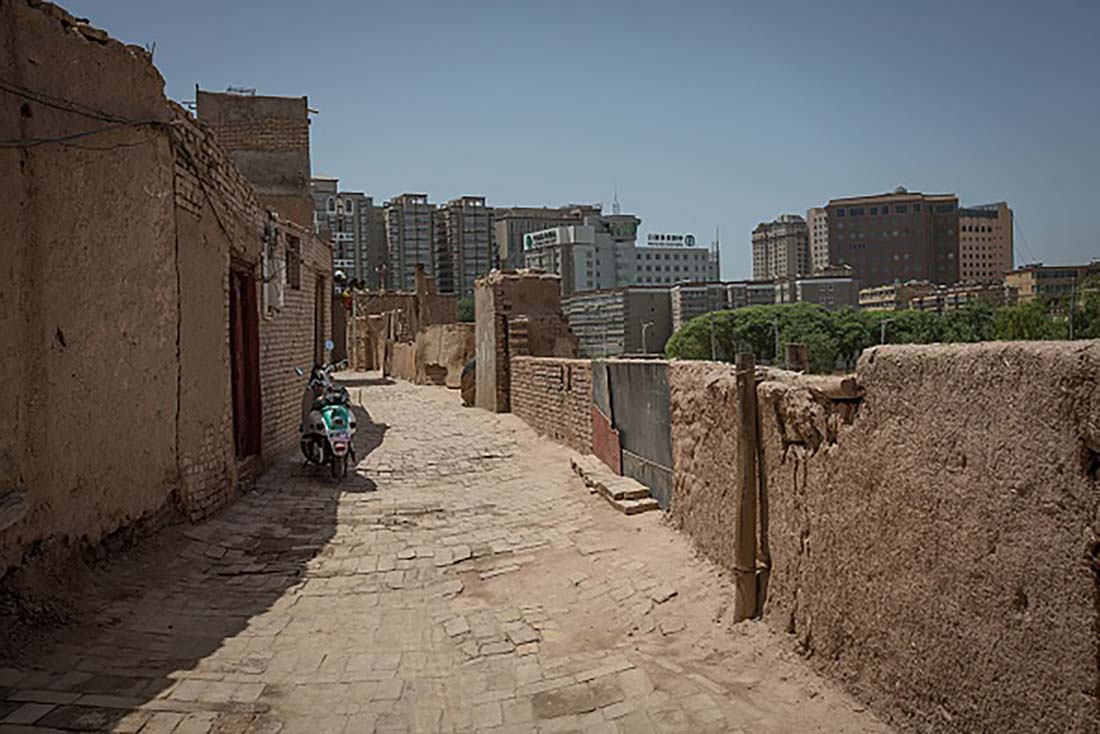
Mass detentions and other controls restricting movement into and out of the region have resulted in painful, years-long family separations. There have also been reports of forced sterilization and birth control.
Credit: Guillaume Payen/Sopa Images/LightRocket/Getty Images
End of one-child policy
Plummeting birth rates — and the economic risks of an aging society and shrinking workforce — pushed China to overhaul decades of restrictive birth controls, ending its one-child policy in 2015. The demographic crisis continued, and in 2021 China further relaxed its rules, allowing families to have three children.
But for many young people grappling with unattainable home prices, long workdays and a challenging job market, the government’s push for marriage and children remains unappealing — especially for women, who still bear the brunt of child raising due to entrenched gender norms.
“We’re the last generation.”



Credits (from top to bottom): Nicolas/Asfouri/AFP/Getty Images, Isaac Lawrence/AFP/Getty Images, Nicolas/Asfouri/AFP/Getty Images.
Crackdown on Hong Kong
Mass pro-democracy protests in Hong Kong in 2019, which brought hundreds of thousands to the streets, posed the greatest challenge for the city’s government since the handover from British to Chinese rule in 1997.
people have been arrested under the national security law. As of June, 124 individuals and 5 companies have been prosecuted.
people have been arrested for their involvement in the 2019 protests, among whom 2,804 have been prosecuted.
Source: Hong Kong’s Security Bureau
We must ensure that Hong Kong is administered by patriots … There is no country or region in the world where its people will allow an unpatriotic or even treasonous force or figure to take power.”
Stifling dissent
Xi has overseen a mass crackdown on civil society, choking an already limited sector by targeting or jailing human rights lawyers, academics, journalists, feminists and activists. The Xi era has also included broad efforts to smother all forms of dissent and bolster the control of information, including by ramping up surveillance and online censorship.
During the so-called “709” crackdown in 2015, around 300 human rights lawyers and activists were rounded up for interrogation, according to monitoring groups, with some later handed prison terms — a sweeping, state-backed blow to civil rights in China.
I will keep defending Wang Quanzhang’s rights. I will take care of our child and wait for Wang Quanzhang to come home.”

Technology powerhouse and digital surveillance
Xi has called innovation the “soul driving a nation’s progress” and increased funding for research, while overseeing a push to make China a leader across high-tech fields from space to quantum computing and AI to green energy.
China’s high-tech capabilities also have another focus: tracking the public through the installation of massive video surveillance systems and biometric data collection — efforts that have intensified in the name of fighting Covid-19.




Credits (from top to bottom): Stringer/Getty Images, Tian Yuhao/China News Service/Getty Images, Kevin Frayer/Getty Images.
Zero-Covid policy
Since China brought the world’s first outbreak of Covid-19 under control in early 2020, Beijing has adopted a zero-tolerance playbook to quell resurgences, harnessing the force of the authoritarian state and its surveillance power to impose lockdowns, force centralized quarantines and mandate regular Covid-19 testing. While the policy initially appeared to have broad public support, two years later discontent is rising.
From this day forward, the central task of the Chinese Communist Party is to lead the Chinese people of all ethnic groups in a concerted effort … to advance the rejuvenation of the Chinese nation on all fronts through a Chinese path to modernization.”
